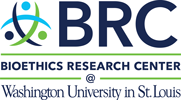Returning Research Results that Indicate Risk of Alzheimer Disease to Healthy Participants in Longitudinal Studies
GRANT
NIH/NIA R01
AG065234-01
02/2020 – 01/2025
KEY PERSONNEL
- Jessica Mozersky, PhD
Multi Principal Investigator - Sarah Hartz, MD PhD
Multi Principal Investigator
- James DuBois, DSc, PhD
Co-Investigator - Erin Linnenbringer, PhD
Co-Investigator - Brian Gordon, PhD
Co-Investigator - Susy Stark, PhD
Co-Investigator - Lillie Levin
Project Manager
DESCRIPTION
This project will determine the impact of returning research results that indicate 5-year risk of developing Alzheimer Disease (AD) dementia to healthy older adults enrolled in a longitudinal cohort of aging. Ethical concerns of returning research results relate to the potential harms of informing individuals their risk of a highly feared untreatable disease. Scientific concerns relate to the potential change in cognitive test results due to knowing one’s risk of AD, potentially compromising the scientific integrity of research studies that follow cognitive outcomes. Returning research results to participants in longitudinal studies of AD who wish to receive them respects autonomy and recognizes participant contributions to research. Evidence is needed to determine the impact of returning research results on psychosocial and cognitive outcomes to responsibly design future studies in AD.
A randomized delayed-start clinical trial will evaluate the impact of returning research results. All participants of a longitudinal cohort of aging will be offered the option to receive research results from a recent PET amyloid scan, MRI, and APOE genotype, presented as a synthesized 5-year risk of developing AD. Aim 1 will quantitatively and qualitatively explore the decision to receive results and reasons for declining or choosing to receive results. Aim 2 will use quantitative and qualitative analyses to determine the effect of returning research results on 1-year cognitive and psychosocial outcomes. Aim 3 will assess feasibility, acceptability, and resource requirements of the return of results process and develop educational materials and a training module for future implementation.
Laying the foundation for widespread return of research results, this is the first systematic and comprehensive approach to returning research results in cognitively normal persons engaged in biomarker studies of AD.

